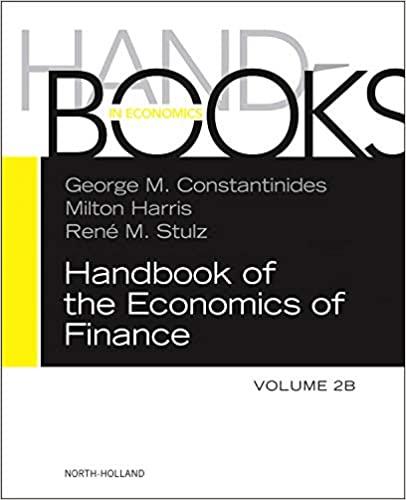 In the problems below, you can use a risk premium of 5.5% and a tax rate of 40% if either is not specified.
In the problems below, you can use a risk premium of 5.5% and a tax rate of 40% if either is not specified.
11. JLChem Corporation, a chemical manufacturing firm with changing investment opportunities, is considering a major change in dividend policy. It currently has 50 million shares outstanding and pays an annual dividend of $2 per share. The firm current and projected income statement are provided below in millions): Current ($) Projected for Next Year ($) EBITDA -Depreciation EBIT -Interest expense EBT -Taxes Net income 1,200 200 1,000 200 800 320 480 1,350 250 1.100 200 900 360 540 The firm's current capital expenditure is $500 million. It is considering five projects for the next year: IRR (Using Cash Flows to Equity) Investment ($) Project Beta 190 million 200 million 200 million 200 million 100 million 0.6 0.8 1.0 1.2 1.5 12.0 12.0 14.5 15.0 20.0 The firm's current beta is 1.0 and the current Treasury bill rate is 5.5%. The firm expects working capital to in- crease $50 million both this year and the next. The firm plans to finance its net capital expenditures and work- ing capital needs with 30% debt. a. What is the firm's current payout ratio? b. What proportion of its current FCFE is it paying out as dividends? c. What would your projected capital expenditure be for next year (i.e., which of the five projects would you accept and why)? d. How much cash will the company have available to pay out as dividends next year? (What is the maximum amount the company can pay out as div- idends?) Would you pay out this maximum amount as div- idends? Why or why not? What other considera- tions would you bring to this decision? f. JKL Corporation currently has a cash balance of $100 million (after paying the current year's divi- dends). If it pays out $125 million as dividends next year, what will its projected cash balance be at the end of the next year? 11. JLChem Corporation, a chemical manufacturing firm with changing investment opportunities, is considering a major change in dividend policy. It currently has 50 million shares outstanding and pays an annual dividend of $2 per share. The firm current and projected income statement are provided below in millions): Current ($) Projected for Next Year ($) EBITDA -Depreciation EBIT -Interest expense EBT -Taxes Net income 1,200 200 1,000 200 800 320 480 1,350 250 1.100 200 900 360 540 The firm's current capital expenditure is $500 million. It is considering five projects for the next year: IRR (Using Cash Flows to Equity) Investment ($) Project Beta 190 million 200 million 200 million 200 million 100 million 0.6 0.8 1.0 1.2 1.5 12.0 12.0 14.5 15.0 20.0 The firm's current beta is 1.0 and the current Treasury bill rate is 5.5%. The firm expects working capital to in- crease $50 million both this year and the next. The firm plans to finance its net capital expenditures and work- ing capital needs with 30% debt. a. What is the firm's current payout ratio? b. What proportion of its current FCFE is it paying out as dividends? c. What would your projected capital expenditure be for next year (i.e., which of the five projects would you accept and why)? d. How much cash will the company have available to pay out as dividends next year? (What is the maximum amount the company can pay out as div- idends?) Would you pay out this maximum amount as div- idends? Why or why not? What other considera- tions would you bring to this decision? f. JKL Corporation currently has a cash balance of $100 million (after paying the current year's divi- dends). If it pays out $125 million as dividends next year, what will its projected cash balance be at the end of the next year
 In the problems below, you can use a risk premium of 5.5% and a tax rate of 40% if either is not specified.
In the problems below, you can use a risk premium of 5.5% and a tax rate of 40% if either is not specified.





